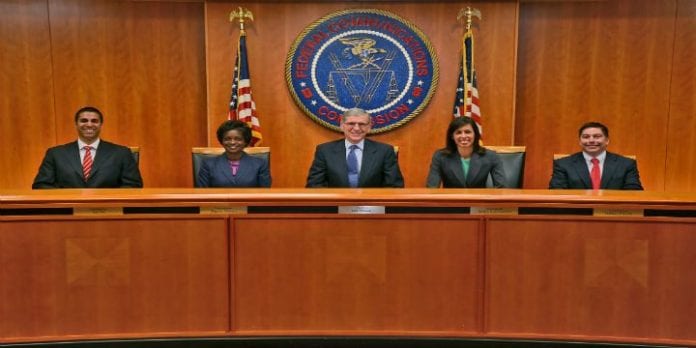The FCC dropped plans to tackle a trio of controversial telecom topics at its November open meeting as transition begins, including USF, BDS and VoLTE roaming.
In the wake of the somewhat surprising presidential election results, the Federal Communications Commission has dropped plans to tackle a trio of telecom related topics at the behest of legislators and as the FCC is likely to see new leadership in the coming weeks.
The FCC said it has dropped plans to discuss Universal Service reform, business data services reform and roaming obligations tied to voice-over-LTE services that were initially to be included in its Nov. 17 open meeting. Those topics have been considered somewhat controversial across the aisle, with support from Democrats – including current FCC Chairman Tom Wheeler – but lacking support from Republican commissioners.
House Energy and Commerce Committee Chairman Fred Upton (R-Michigan) and House Subcommittee on Communications and Technology Chairman Greg Walden (R-Oregon) submitted letters to Wheeler asking the FCC to stop any further action on “controversial” items during the current administration transition period. Those letters were followed up by similar requests from both Republican Commissioners Ajit Pai and Michael O’Rielly, which cited a similar move by former FCC Chairman Kevin Martin during the transition period between former President George W. Bush and President Barack Obama.
Wheeler just last month made good on a previous promise to circulate proposed rules to fellow commissioners looking to reform the BDS market. The order included what the FCC termed a “new framework” designed to balance differences in competition between legacy time-division multiplexing services, which are said to have the least amount of choice, and packet-based services, which the FCC noted “new entry and competition may be emerging.” In addition, the rules reaffirmed BDS services as being subject to the government agency’s Title II oversight.
During a keynote address at the recent Competitive Carriers Association Annual Convention, Wheeler said he would move on the reform proposal by year-end.
“I will present the commission with a reform proposal that will tackle this issue and encourage innovation and investment in what we now call business data services, while ensuring that lack of competition in some places cannot be used to hold back wireless coverage,” Wheeler said, taking aim at AT&T in adding, “notably, reform is supported by the nation’s leading wireless carriers, save one.”
Following up on the letter submitted to the FCC by Chairman Walden, but before the BDS issue was dropped by the FCC, AT&T said the proposed action “picks regulatory winners and losers without regard to the significant factual and economic evidence presented in the docket.”
The upcoming FCC open meeting does still include plans to consider an unnamed “enforcement action.”
Bored? Why not follow me on Twitter

